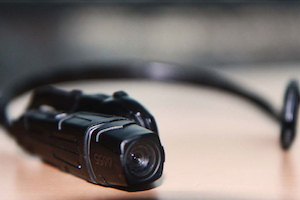Model Police Policy Body Worn Cameras: A Guide for Prosecutors

Author(s): PCE, CDAA
Digital evidence includes evidence retrieved from cell phones, computers, surveillance cameras, and social media sites. PCE can provide information on how digital evidence is captured, preserved and authenticated for use in court, as well as information to assist prosecutors with addressing emerging issues, such as police worn cameras.
Read MoreNew Evidence in Prosecutions
January 28, 2016 — Volume 6
Secure In Our Convictions:
Using New Evidence To Strengthen Prosecution
Prosecutors’ Center for Excellence, January 2016. Click here
Benefits and Challenges of New Evidence: With the focus on erroneous convictions of the past, there has been little discussion of the improvements in science and technology that are enabling police and prosecutors to get their cases right in the first instance. Time and again this new evidence is being used in jurisdictions of all sizes to verify the guilt of a suspect or to exonerate an innocent suspect. However, with these benefits come serious challenges. Prosecutors must find the manpower, technical knowledge, and funds to keep pace with the changing technologies and the deluge of digital evidence. Pre-existing budget cuts and diminishing labor pools often compound these hurdles.
Read MoreBody Worn Cameras – Tips for Prosecutors
January 14, 2016 — Volume 5
Police departments around the country are purchasing body worn cameras (BWC) at an accelerating pace. Prosecutors should get involved in this process as early as possible. Here is a brief overview of some of the issues prosecutors may consider. Also attached is a selection of model policies, articles and reports that provide more detailed information.
Read MoreGoing Dark
December 15, 2015 – Volume 4
Since 2014, Apple and Google’s new operating systems automatically encrypt their phones. This means that if law enforcement does not have the password, Apple or Google can no longer access the phone, even with a court ordered search warrant. The encryption may apply to some computers and laptops as well. So if a murder victim never divulged his or her passcode to anyone, or if a suspect refuses to disclose his passcode, the potential evidence or clues on the phone may remain permanently inaccessible.
Read MoreNew Apple and Android OS Blocks Law Enforcement
October 25, 2014 – Volume 2
In September 2014, Apple issued an update to its operating system for iPhones and iPads, known as iOS 8. In the coming weeks, Google is also expected to unveil an updated operating system - known as Android “L” - for most Android cellphones and tablets. Both new software packages will significantly curtail law enforcement’s ability to look for data on smartphones and tablet devices, even with properly obtained search warrants or other judicial process. The following are some points for law enforcement to consider:
Read MoreCategories
- Alternatives to Sentencing/Post-Filing Diversion
- Best Practices Committee
- Community Collaboration
- Conviction Review
- Court Collaboration
- Data
- Did you Know?
- Did You Know? Archive
- Ethics
- Family Violence Crime Strategies
- Felony Crime Strategies
- General Crime Strategies
- Gun Crime Strategies
- Implicit Bias/Racial and Ethnic Inequity
- Innovations Blog
- IPS Grant
- Juvenile Strategies
- Low-Level Crime Strategies
- Narcotics Crime Strategies
- Office-Wide Reform Strategies
- PCE Publications
- Pre-Filing Diversion
- Procedural Reform/Bail/Sealing
- Re-entry programs
- Recruitment and Retention
- Sex Crime/Human Trafficking Strategies
- Victim Services and Assistance Programs
- Video Blog
- Violence Investigation/Reduction Strategies
- Wellness
